What is cancel culture? And which children's book authors have been 'cancelled'?
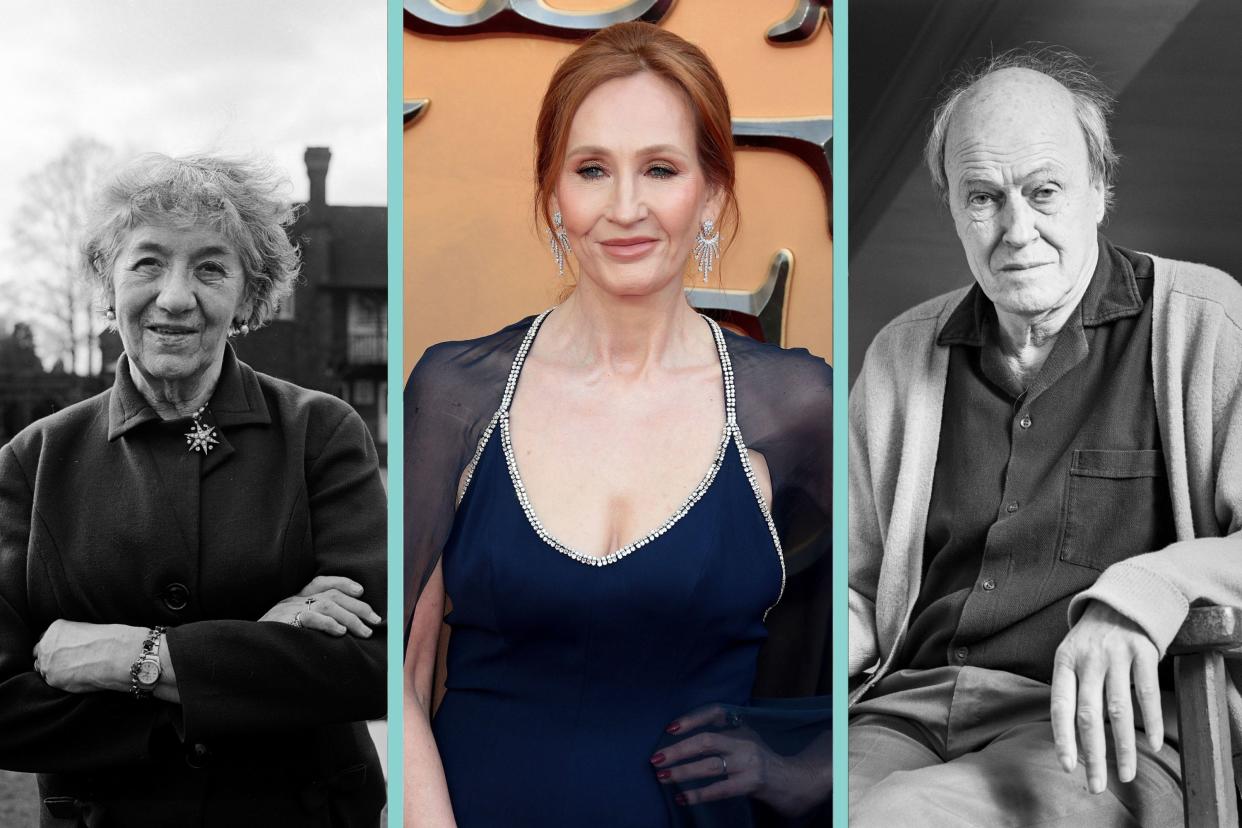
Getting 'cancelled' has now become a fear for a lot of people in the public eye. Many authors are facing the effects of cancel culture, but what is it?
From the use of damaging and outdated language to using their platform to express troubling personal views, children's authors have been faced with the reality of cancel culture. Stemming from 'cancel' meaning ‘annul or revoke’ as stated by Oxford Dictionary, to 'cancel somebody' means "to exclude somebody from social or professional life by refusing to communicate with them online or in real life, because they have said or done something that you do not agree with."
Cancel culture is a modern term, coming with the emergence of social media. These platforms offer large bodies of people the chance to quickly digest emerging news about people, and decide how they feel about their behaviour. In the case of children's authors, Enid Blyton had questions raised about terms used in her books that dated back to the 60s. Modern culture allowed unprecedented levels of discussion about her work, and the ability for it to be 'cancelled.' Several other high-profile children's authors have been subject to the same fate.
What is cancel culture?
In simple terms, cancel culture is the idea of taking away support for an individual, their career, popularity and/or fame because of something they’ve said or done that’s considered unacceptable.
Children's book authors are public figures with influence over a huge audience, exposing them to the possibility of being 'cancelled'. This could happen when terms, references, and storylines in their books are deemed offensive or no longer in line with acceptable standards set by society - where what they’ve written is thought to cause harm to a particular person, group of people or community. The backlash generally surrounds racist, homophobic, and xenophobic language, and the use of gender and role stereotypes that have no place in modern society.
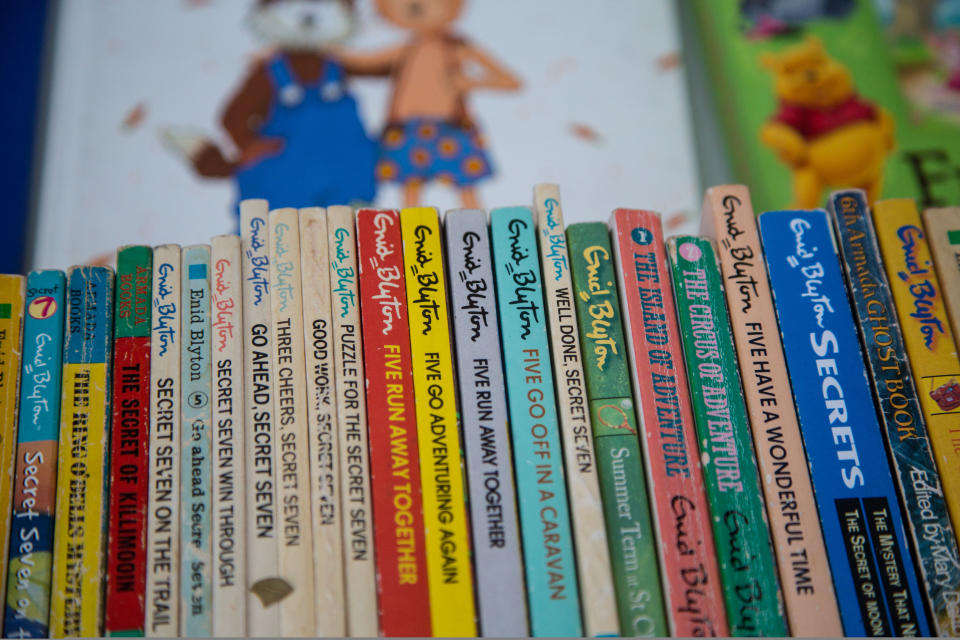
In the case of JK Rowling, comments she mad that some perceived to be transphobic resulted in her being 'cancelled,' and highlighted some problematic themes running through the Harry Potter book series.
Some see participating in cancel culture as the most effective way to hold public figures to account, especially if they're still alive and no other lawful way appears to be working. By bringing the grievance public, it forces the accused or those responsible for their estate to confront the situation. In other words, it re-balances the power gap between those with huge audiences and the people or communities who could be negatively affected.
However, others believe cancel culture is more of a 'mob mentality' that’s gone out of control.
But the idea of cancel culture or 'cancelling' someone hasn’t been around forever. It first appeared in a breakup song written by Nile Rogers in 1981 called Your Love is Cancelled, before being used in the dialogue of 1991 film New Jack City. Following this and throughout the 90s and early 2000s, artists continued to use the phrase in music and YouTube videos.
It became more mainstream when a comment was made about 'cancelling' someone in a 2014 episode of popular reality show Love and Hip Hop. Since then, cancel culture and 'cancelling' have made their way into mainstream vocabulary.
But while the idea has been around for some years now, the new use of the verb ‘to cancel’ only entered the official Merriam-Webster dictionary in 2022. A lot of children's book authors came under fire when the phrase took off, mostly for the use of offensive and dated language and ideologies.
What does it mean to be 'cancelled'?
Generally, to be 'cancelled' is effectively to be boycotted. This is with the intent that the person will be ostracised and no longer benefit financially, personally or professionally from their elevated position.
However, for authors, it has often meant that their stories are revised. In some countries, books by certain authors have been banned altogether. Alice's Adventures in Wonderland by Lewis Carroll was banned in China in back in 1931. The governor of Hunan province ruled that animals should never be depicted using human language and should never be put on the same level as humans.
And Tango Makes Three by Peter Parnell and Justin Richardson often makes it to lists of banned books. The children's story is based on the true story of gay penguins in a New York zoo. Religious groups, libraries and individuals have banned it for censorship reasons varying from it being "anti-ethnic" and "anti-family" to arguments surrounding its suitability for children.
However, banning books in this way is controversial and varies based on a country's history and values. Those book wouldn't be banned in the UK, a country that would view them objectively as stories with positive messages to instil. The UK raises issues about an authors based on legally inappropriate use of language, and messages that shouldn't be passed on to children or that they should be challenging.
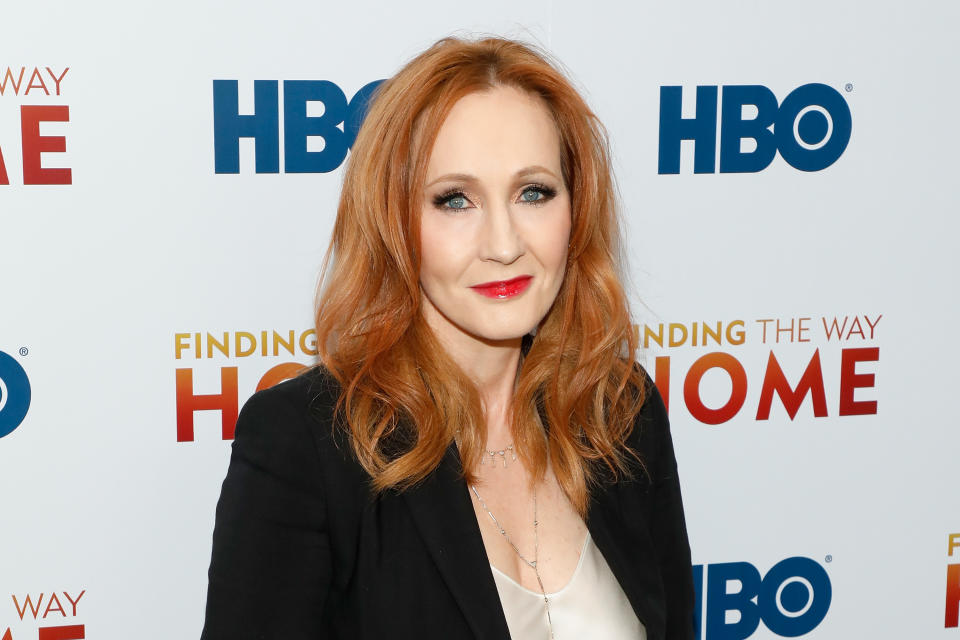
However as an uncompromising form of public backlash, cancelling doesn't always work this way - or have social justice as its primary motivator.
“Some have mixed emotions about cancel culture and the way that people on social media hold those in the public eye,” explains leading psychiatrist Dr Tiago Reis Marques. “It can be seen as helpful particularly around large social issues but also damaging to someone’s career and reputation."
Dr Marques, who is also the chief executive officer of Pasithea Therapeutics, says that for the "cancelled" person, the mental impact can be huge. “It can essentially feel like they are being attacked by the whole world. This is particularly harmful to a person’s psychological state as we have seen in previous cases and often leads to chronic depression and anxiety."
"As cancel culture often leads to an individual being ostracised for something they have done or said, it can cause the person in question to feel rejected," our expert added.
"Rejection can have a negative impact on self-esteem and self-worthiness which are known risk factors for depression and anxiety, potentially leading to a worsening of the patient mental health. Cancel culture is public shaming and social media has given rise to a particularly virulent form of mob justice that is negatively impacting our mental health," they concluded.
Which children's book authors have been "cancelled"?
1. Rudyard Kipling

Rudyard Kipling was a novelist, short-story writer, and poet, and journalist. He was born in British India, which acted as inspiration for much of his work. Kipling is most famous for penning The Jungle Book and The Second Jungle Book, and many short stories, including The Man Who Would Be King. His well-known poems include Mandalay and The White Man's Burden.
Even while he was alive, criticism of his work was strong. The White Man's Burden was thought to cement his place as a firm advocate of British imperialism. He felt compelled to undertake a mission of civilising others during his life, with the job of the English being to civilise those in countries he felt were uncouth.
According to the Guardian, English Heritage have acknowledged Kipling's political views contain "Racist and imperialist sentiments". Referring in particular to White Man's Burden, they added "Its offensive description of 'new-caught, sullen peoples, half devil and half child" sought to "portray imperialism as a mission of civilisation".
English Heritage add that "George Orwell found Kipling’s attitude to instances of colonial brutality morally insensitive and aesthetically disgusting, but admitted the importance of his work to him in his younger life."
They concluded "While his children’s stories remain popular today, Kipling has been criticised for his imperialist views and romanticising colonialism in his writings."
Historic UK reports that while the world and views changed around him, Kipling didn't respond well to falling out of favour and spent the rest of his life in isolation until his death in 1936 aged 70.
2. JK Rowling
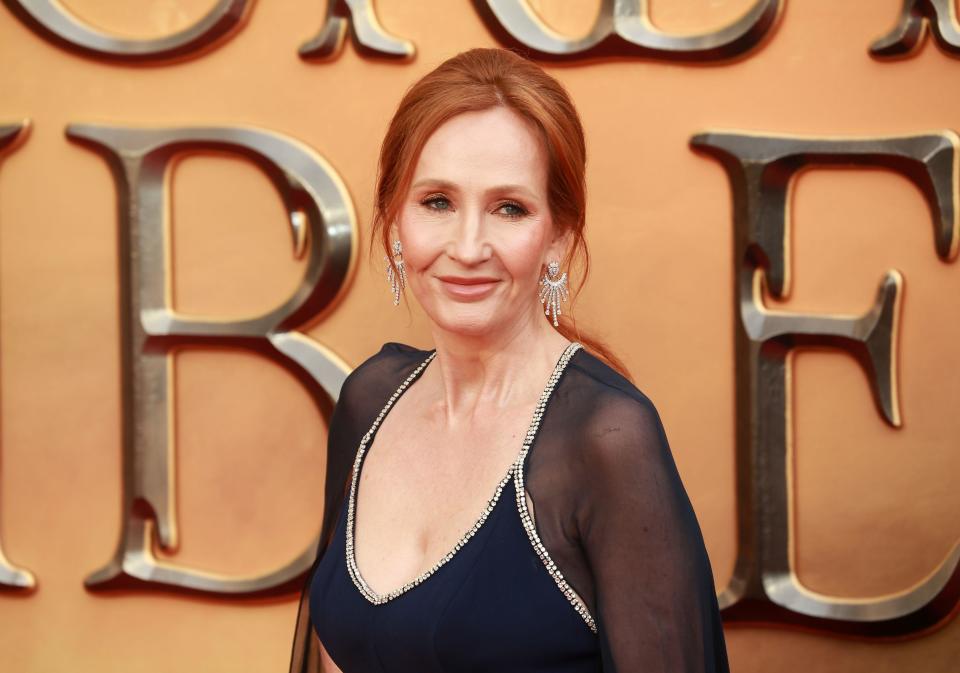
J.K Rowling, author of the Harry Potter series, is another famous 'cancellation' from the last couple of years. The multi-millionaire took to Twitter in support of Maya Forstater, a researcher who was fired from her job after she tweeted that people cannot change their biological sex in a comment that has been labelled by some as transphobic.
Rowling tweeted in response, "Dress however you please. Call yourself whatever you like. Sleep with any consenting adult who'll have you. Live your best life in peace and security. But force women out of their jobs for stating that sex is real?" adding the hashtag #IStandWithMaya.
This then prompted Alphonso David, president of the LGBTQ advocacy group Human Rights Campaign, to tweet, "J.K. Rowling says she's opposed to fundamentalism in any form, but she's promoting a harmful fundamentalism that endangers the LGBTQ community — particularly transgender youth. She should apologize."
While the author has been praised for some of her previous efforts to defend LGBTQ+ people, she has since been labelled a 'TERF' (trans-exclusionary radical feminist) by her critics. In 2017, Rowling liked a tweet that promoted an article seen to be transphobic. She liked another tweet that referred to trans women as "men in dresses" earlier that same year, although her spokesperson said it was an accident.
Following the Harry Potter books, J.K Rowling released a crime novel series called Cormoran Strike. Instead of using her own name, she used the pseudonym Robert Galbraith. Rowling has explained that the name came from one of her personal heroes, Robert F. Kennedy, and a childhood name she invented for herself, Ella Galbraith. However, Robert Galbraith is also the name of the man who invented conversion therapy - a treatment to change a person's sexual orientation or suppress their gender identity. Many were quick to point out that this information is available with a simple Google search, something they say Rowling should have done herself.
In August 2020, Rowling return the Ripple of Hope Award bestowed upon her in 2020 by the Robert F. Kennedy Human Rights organisation (RFKHR), after its president criticised the author's views on transgender issues. Meanwhile, members of the Harry Potter universe including Daniel Radcliffe, Emma Watson and Rupert Grint, have appeared to distance themselves from Rowling by showing their support for transgender individuals. Grint said in a statement to Us Weekly in June 2020: "I firmly stand with the transgender community."
Following the controversy and the beginning of lockdown, Bloomsbury announced that sales of the Harry Potter books were up and had boosted their children's division by more than a quarter. However, although her books might remain popular with die-hard fans, Rowling has since spoken out about the death threats she's received. She's recently admitted to being frightened for the safety of herself and her family, acknowledging that time will tell whether she did the right thing by making her views public.
3. Enid Blyton

The so-called 'cancellation' of Enid Blyton came amid plans by British Heritage to review almost 1000 blue plaques following the Black Lives Matter protests across the world in 2020. The plaques adorn buildings around the UK that have been significant in the lives of prominent figures in history.
In April 2021, British Heritage announced that they would be updating the website reference that links to the plaque outside the home where Blyton lived from 1920 to 1924. “Blyton’s work has been criticised during her lifetime and after for its racism, xenophobia and lack of literary merit,” the website read, according The Washington Post and The Telegraph.
In 1966, an MP wrote to The Guardian to suggest the Race Relations Act be modified to include literature, after reading Blyton's The Little Black Doll. Published in 1965, a doll named Sambo is rejected by his child owner and the rest of the toys in the nursery, on account of his black face. Sambo is only accepted once their "ugly black face" is washed "clean" by some magical rain.
By February 2022, English Heritage had amended their website , writing instead that some people "took exception to what they perceived as social snobbery, racism and sexism embedded in Blyton’s storylines".
Naturally, as with any subject of supposed cancel culture, there were two sides to the debate. Some consider Blyton's work to be essential in the literary canon and not subject to the same standards as today, considering the books were written almost 100 years ago.
To others, this has been a long-time coming. The Royal Mint were forced to put plans to honour the author with a commemorative coin on hold in 2019, following backlash that referred to the author as a “racist, sexist, homophobe and not a very well-regarded writer”.
But allegations of problematic language from Blyton have been around since before she died. Publisher Macmillan refused to publish Enid Blyton's story The Mystery That Never Was in 1960, citing a "faint but unattractive touch of old-fashioned xenophobia."
So has Enid Blyton been cancelled? Not really. Firstly, British Heritage has apparently backtracked on their commitment to address “any uncomfortable aspects” of this plaque subject's life on their website, as promised. But to be "cancelled" requires mass public rejection of work, with the threat of a loss of reputation or earnings.
Enid Blyton is still claimed as one of the most beloved children's authors to have lived and she is the fourth most-translated author in the world - coming in close behind William Shakespeare, Agatha Christie and Jules Verne. Adaptations of her work continue to make it to TV and theatre, with The Famous Five hitting the 2023 Christmas TV schedule, having been modified to reflect modern society.
4. Roald Dahl

Roald Dahl had complaints made about his work back when it was first published. However, the criticisms were over his stories being too dark for children, and simply weren't strong enough for him to be 'cancelled'.
For example, the BBC reported that on the release of James and the Giant Peach it came under fire for references to drugs and drink, and use of profanity. Some even felt that a spider licking its lips could be seen as sexual innuendo, arguing the story as a whole promoted disobedience in children. These are subjective, and weren't enough to cause widespread offence.
As reported by the Guardian, Dahl made his antisemitic views very public in a New Statesman interview in 1983. He said "There is a trait in the Jewish character that does provoke animosity, maybe it’s a kind of lack of generosity towards non-Jews. I mean, there’s always a reason why anti-anything crops up anywhere. Even a stinker like Hitler didn’t just pick on them for no reason."
In the same way as Enid Blyton, plans by the Royal Mint for a Roald Dahl commemorative coin were also dropped in 2014 due to his hateful opinions.
It took Dahl's family 37 years to respond to his antisemitism. In 2020, they issued a statement saying "The Dahl family and the Roald Dahl Story Company deeply apologise for the lasting and understandable hurt caused by some of Roald Dahl’s statements.
"Those prejudiced remarks are incomprehensible to us and stand in marked contrast to the man we knew and to the values at the heart of Roald Dahl’s stories, which have positively impacted young people for generations. We hope that, just as he did at his best, at his absolute worst, Roald Dahl can help remind us of the lasting impact of words."
It wasn't until 2023 that Puffin books announced many of Dahl's books were being altered, to remove derogatory words and passages. Predominantly, these relate to race, mental health, physical appearance, and the stereotyping of gender roles.
Dahl did himself make early changes to the way Charlie and the Chocolate Factory's Oompa Loompas were depicted. They were originally going to be small black people, from "The deepest and darkest part of the African jungle".
The original versions of his books will still be available to purchase with the original language left in place.
5. Dr. Seuss

Born Theodor Seuss Geisel in 1904, Dr Seuss wrote and illustrated over 60 books during his lifetime. His popular children's books sold over 600 million copies and were translated into more than 20 languages while he was alive.
In 2021, Dr Seuss Enterprises announced publication of six of his books would cease. The decision was made following a thorough review of his material, by teachers, academics, and other experts. The books had been selected on account of their racist and insensitive portrayals of people of colour.
Those books no longer in publication consist of And to Think That I Saw It on Mulberry Street, The Cat's Quizzer, If I Ran the Zoo, McElligot’s Pool, On Beyond Zebra!, and Scrambled Eggs Super!
In And to Think That I Saw It on Mulberry Street and If I Ran the Zoo, Asian characters are depicted with bright yellow skin, slanted eyes, holding chopsticks and a bowl of rice. A further picture shows three Asian men carrying a white child who refers to them as "Helpers who all wear their eyes at a slant."
An extensive and widely cited body of research into Dr Seuss books found very few characters of colour in the stories, and those that did form part of the plot were written in a that perpetuated racism and stereotypes. He's also been criticised for a distinct lack of female characters in his work.
In a report from NBC News, Karen Ishizuka, chief curator at the Japanese American National Museum in Los Angeles, offered a possible reason for Dr. Seuss' racism. She believed he was able to get away with it for long due to the persistent anti-Asian racism prevalent in the US at the time. She believed racist depictions were already such a normalised part of American society, Dr. Seuss would never have been questioned over them.
However, Philip Nel, a children’s literature scholar and English professor at Kansas State University, suggested the argument Dr Seuss reflected the time he was living in, doesn't stand up. "The ‘man of his time’ narrative isn’t a great argument because to make that claim is profoundly ahistorical," He said.
Nel added "All people in every moment don’t think the same. There were plenty of white Americans during that time who were not spreading the rhetoric that he was."
Dr Seuss is honoured in the US on "Read Across America Day," which falls on his birthday. The President usually offers a speech on this day, with Barack Obama once saying in his, "The works of Theodor Seuss Geisel, better known to us as Dr. Seuss, have sparked a love for reading in generations of students.
"His whimsical wordplay and curious characters inspire children to dream big and remind readers of all ages that 'a person's a person no matter how small'."
However, President Biden refused to mention Dr Seuss during his "Read Across America Day" proclamation in 2021, leading Fox News to run the headline "Biden erases Dr Seuss from 'Read Across America' proclamation as progressives seek to cancel beloved author."
6. Laura Ingalls Wilder
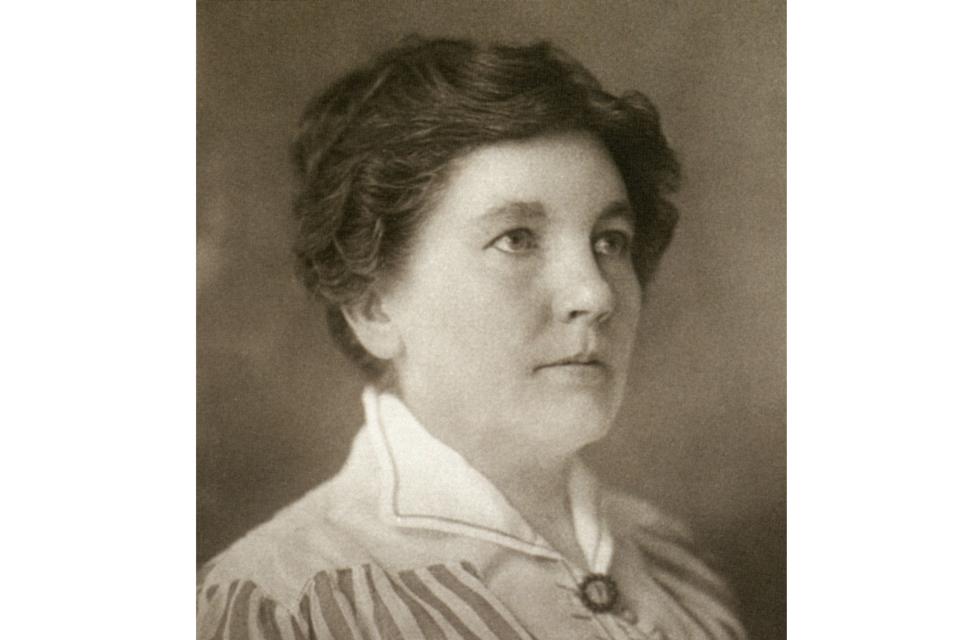
American author Laura Elizabeth Ingalls Wilder was best known for her The Little House on the Prairie series of children's books. These were published between 1932 and 1943, and based on her own childhood in a settler and pioneer family.
In 2018, NPR reported the American Library Association had voted to strip Laura Ingalls Wilder's name from a major children's literature award bearing her name. This was in relation to how her work referred to Native Americans and other people of colour.
The Laura Ingalls Wilder Award subsequently had its name altered to the Children's Literature Legacy Award. The association said in a statement at the time "The decision was made in consideration of the fact that Wilder's legacy, as represented by her body of work, includes expressions of stereotypical attitudes inconsistent with ALSC's core values of inclusiveness, integrity and respect, and responsiveness," having noted the "anti-Native and anti-Black sentiments" in Wilder's books.
An example of one controversy can be found in the 1935 Little House on the Prairie novel, where a place is described using the words "There were no people. Only Indians lived there."
As with many previous children's authors who have come under scrutiny for their work, some were of the opinion Wilder shouldn't be 'cancelled.' Instead, they suggest scrutinising her work to use it as a learning opportunity for children.
The Laura Ingalls Wilder Legacy and Research Association released a statement reading "We believe it is not beneficial to the body of literature to sweep away her name as though the perspectives in her books never existed. Those perspectives are teaching moments to show generations to come how the past was and how we, as a society, must move forward with a more inclusive and diverse perspective."
However, research points to the fact that children can form racial bias from as young as three, with those biases often fixed by age seven. By this time, it would be too late to reverse their prejudice and learning about the context surrounding Wilder's books. Teaching this would not have as much impact as having her racist intonations being removed altogether, before young children can read them.
If you are feeling out of the loop when it comes to slang terms, why not learn about what woke means or how time has changed since life before the internet.

 Yahoo News
Yahoo News 
